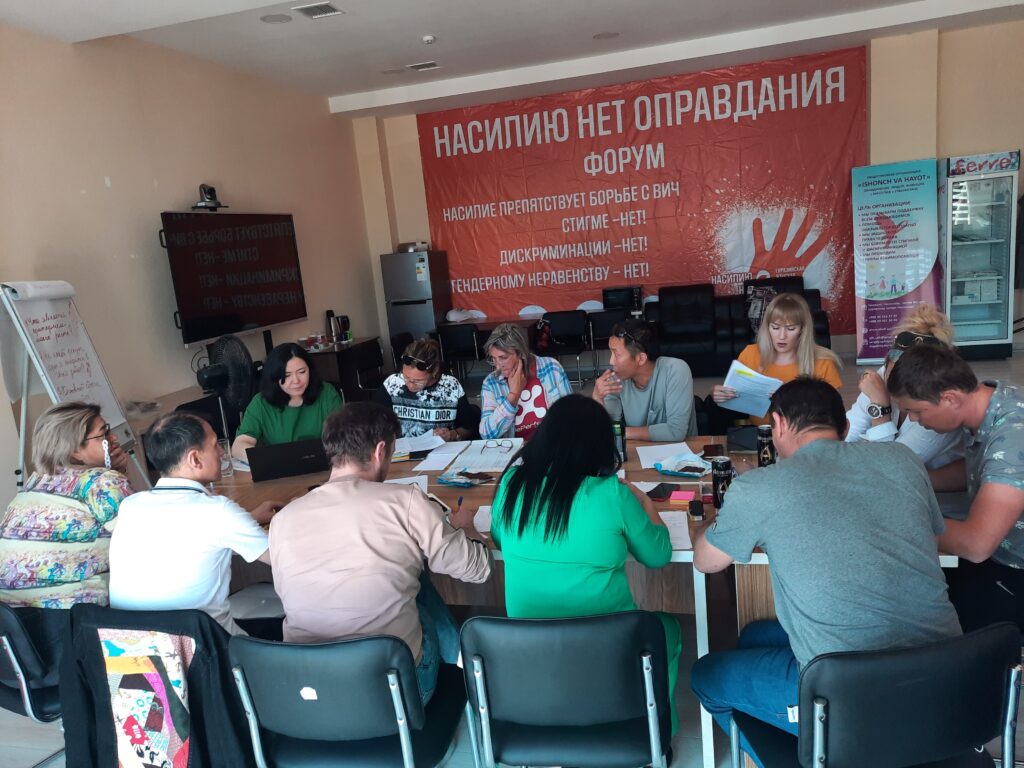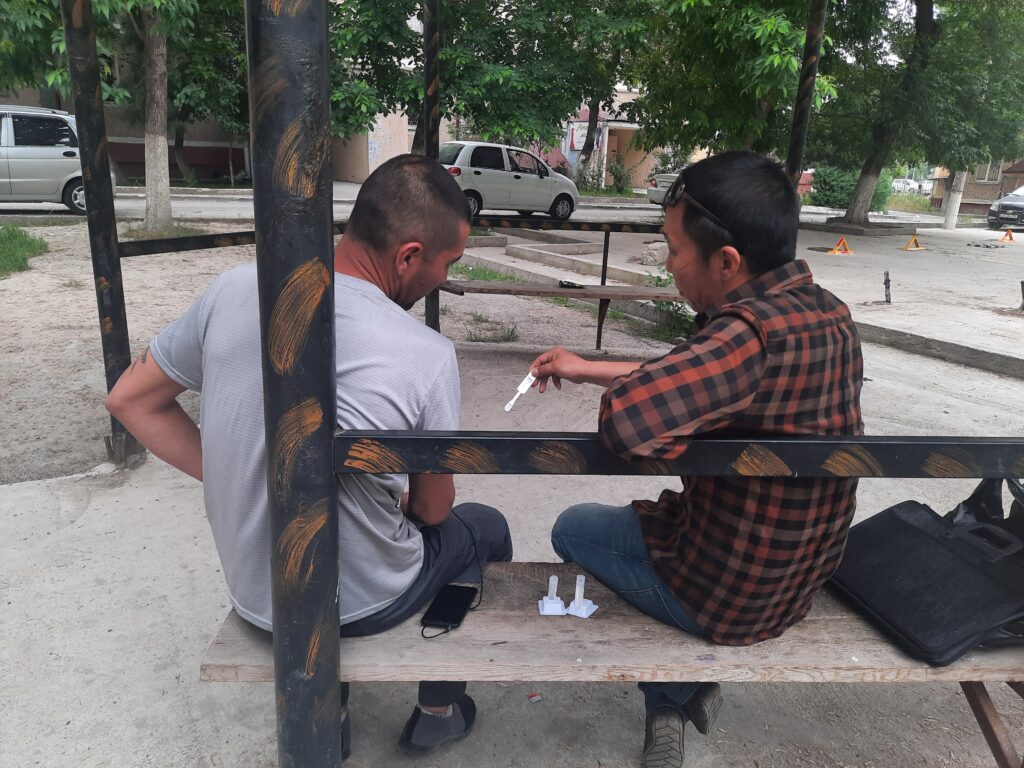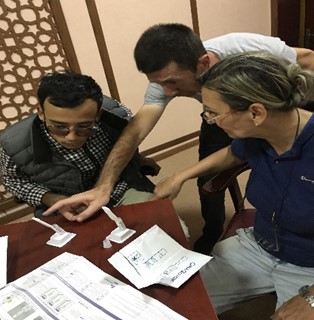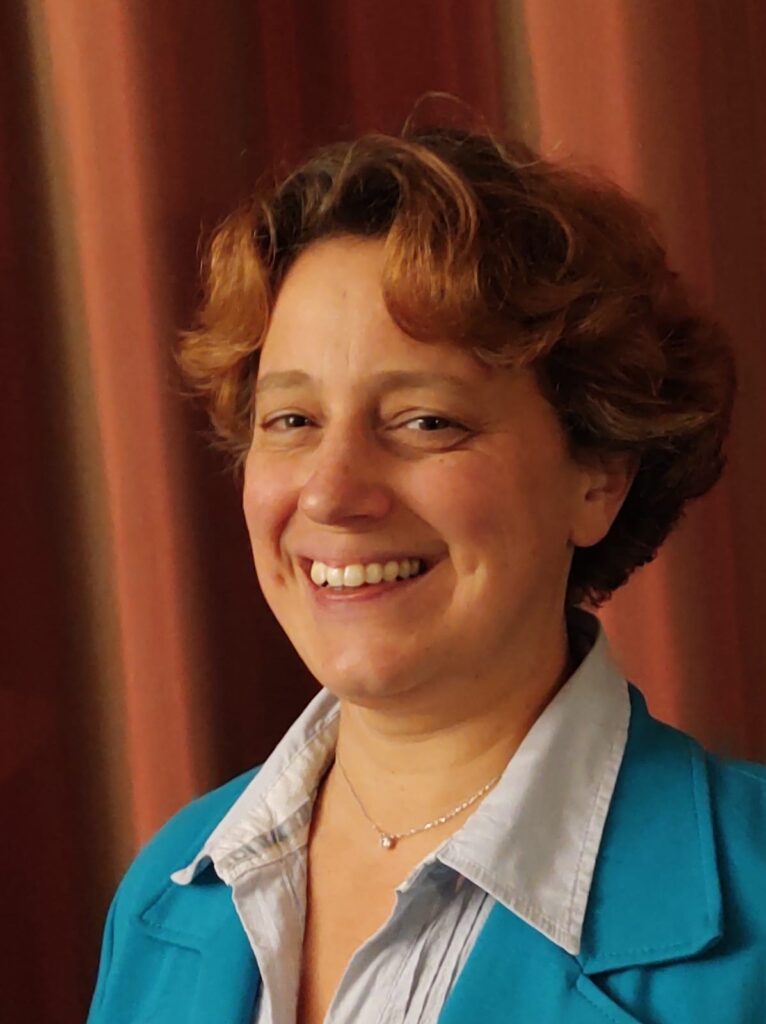The project “Expansion and improvement of HIV prevention services in Uzbekistan”, which has been implemented for the past two years by AFEW International in partnership with ISHONCH VA HAYOT (IvH) and with support from the Elton John AIDS Foundation in Uzbekistan, will finish in April 2023.



This unique project has changed the attitude of the representatives of vulnerable groups toward HIV testing. Thanks to this endeavour, 1624 people living with HIV who feared being tested in the past were able to get the test. Many of them registered for dispensary observation and successfully started treatment. We spoke with the project’s outreach coordinator at ISHONCH VA HAYOT Evgenia Korotkova about the achievements and difficulties of the project.
What is the uniqueness of your project?
Our project is unique because for the first time in this country, such work is implemented by the community and on the basis of the community. It means that as a community we have access to populations most vulnerable to HIV. Our staff themselves are representatives of such groups, they have a positive experience of living with HIV, and know a lot about HIV prevention and harm reduction. It gives us a huge advantage – we are able to establish trusting relationships with the project’s clients and offer them testing in a safe environment. In addition, it is important to mention that our project is in line with the country’s strategy to combat HIV infection, which is described by the Decree of January 2023. The President of Uzbekistan approved the HIV program for the period from 2023 to 2027, by means of which the government of Uzbekistan intends to achieve the UNAIDS global goals “95-95 -95” not by 2030, but by 2027: 95% of all people living with HIV should know their HIV status, 95% of them should receive ARV therapy, 95% of all people receiving therapy should have an undetectable viral load.
What does testing in a safe environment mean?
It means firstly, the absence of any bureaucratic procedures. It is all about privacy. The main thing for us is that clients want to be tested, and then we offer to do it in a comfortable environment at any time suitable for them. Besides, testing in a safe environmentalso provides confidentiality, and anonymity. Specialists are giving information about innovative approaches, offering consultations about prevention, care, support, and treatment, and about other existing services addressing clients’ needs. We offer an individual approach to each key population. Sex workers and people who use drugs are considered hard to access. To be able to offer testing to them, outreach workers should know key locations where these people gather and who their leaders are. In this context, word of mouth and motivation to pass the test work well. In the case of men how have sex with men, online information via social networks and closed platforms works well.
Were there any difficulties in the implementation of the project?
There were difficulties, of course. The biggest one was to put those who tested positive for HIV for D-observation. The clients of the project did not want to start treatment since they had self-stigma, and fear that their diagnosis would be revealed. This is the consequence of external stigmatization and discriminatory laws. This fear is stronger than the fear of dying from AIDS.
Implementation of a new program always requires teaching staff new skills. Did you organise trainings?
Yes, we conducted the first training on September 28-30, 2021. It was devoted to the topic of implementation of HIV-assisted self-testing among key populations. The purpose of the class was to train outreach workers/peer consultants in skills aimed at working with vulnerable groups of the population. This training was conducted for the first time for outreach workers and was very significant in the implementation of the project. Acquired skills allowed trained employees of the involved organizations to work with HIV-positive people who were not available for dispensary observation, conduct testing, counseling, and deliver social support for such clients. One training at the beginning of the project is not sufficient, therefore, throughout the entire period of the project, we provided coaching and follow-up/refreshment trainings.
The project will finish in April this year. Do you have any plans to continue work in this area further?
Certainly, we should continue our activities. The project showed excellent results, and now we are doing our best to find funding for its continuation. We make plans to implement the country’s strategy to further strengthen the HIV response system among the population for 2023-2027. One of the tasks of the strategy is to study the experience of HIV self-testing and develop proposals for introducing positive experiences into practice. Our pilot project provides evidence base and good practices for the country! On behalf of our entire organisation, I would like to thank our partners from AFEW International and the Elton John AIDS Foundation for the opportunity to implement the project.

Petra Kuipers, Program Manager Central Asia (AFEW International)
I would like to thank our local partner «ISHONCH VA HAYOT» for the great work on this project. Thanks to their community-based approach in combination with personal drive and compassion the IvH team was able to work with groups that are difficult to reach. The positivity rate shows that their approach is successful, and I hope that these activities will continue even after the project is over. AFEW International will continue its work in Uzbekistan by strengthening partners’ capacities on improving health and social protections for underserved populations and communities.



